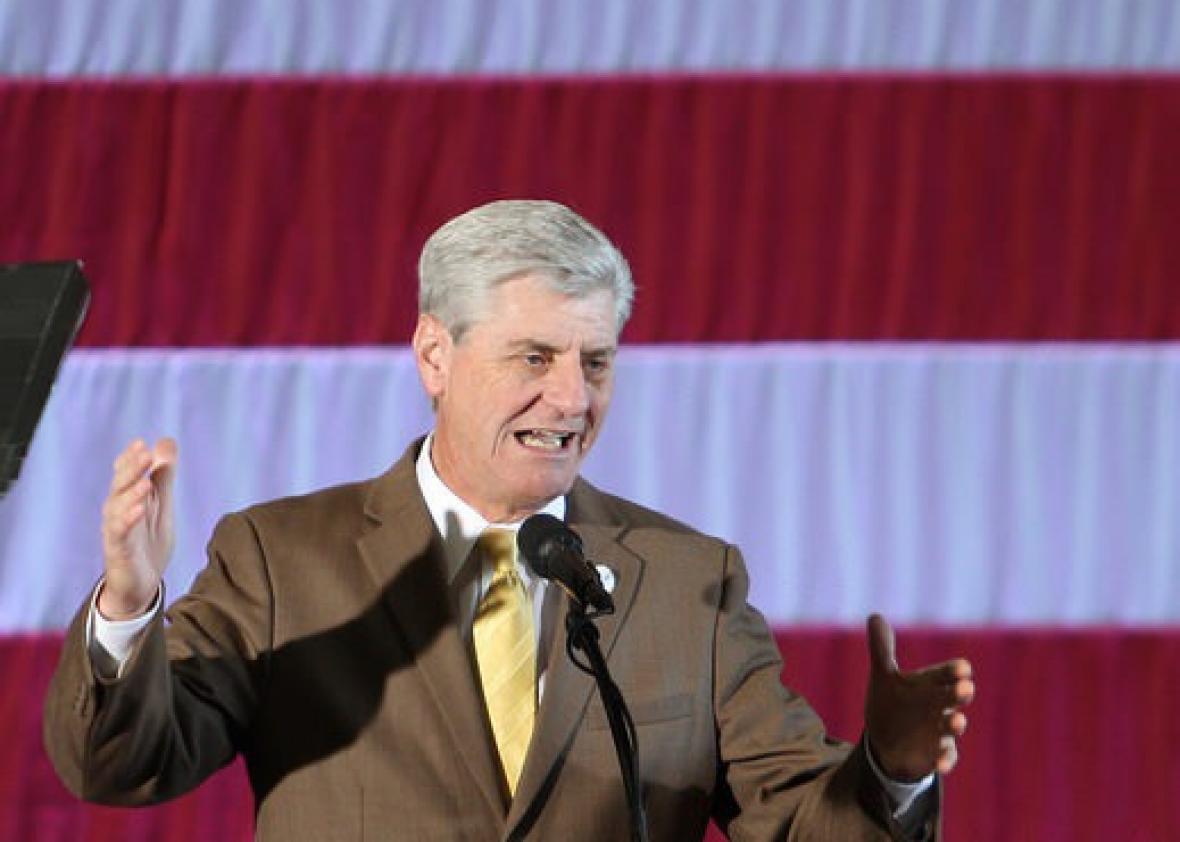The fight against Mississippi’s HB 1523, the worst anti-LGBTQ law in the United States, may be heading to the Supreme Court.
On Friday, the judges of the 5th U.S. Circuit Court of Appeals refused to reconsider a panel decision holding that challengers to HB 1523 do not have standing to challenge the measure in court. Two judges issued a fierce dissent asserting that the 5th Circuit had “abdicated its mandate to decide the substantive claims raised by the plaintiffs.” These plaintiffs will now ask the Supreme Court to rule that they have standing to contest HB 1523’s constitutionality. Former U.S. Solicitor General Don Verrilli and Paul Smith, a renowned Supreme Court litigator, will join the appeal.
Mississippi passed HB 1523 as a direct response to Obergefell v. Hodges in an effort to stymie LGBTQ equality in the state. The law singles out three religious beliefs for heightened protection: The belief that marriage is between a man and a woman; that sexual relations outside of a heterosexual marriage are improper; and that a person’s gender must always be the sex they were assigned at birth. Individuals who hold these three beliefs get special rights laid out in the statute. Doctors, employers, businesses, landlords, schools, and adoption agencies (including state-funded ones) are expressly licensed to discriminate against LGBTQ people if their religion compels it. No other religious convictions receive extra protection under the law.
By elevating three beliefs over all others, HB 1523 would seem to violate the neutrality principle at the heart of the First Amendment’s Establishment Clause. The measure favors a few religious beliefs over others, effectively endorsing a specific sect of Christianity. As the Supreme Court has explained, the government runs afoul of the Establishment Clause when it endorses religion in this manner by sending “a message … [to] nonadherents that they are outsiders, not full members of the political community, and an accompanying message to adherents that they are insiders, favored members of the political community.”
In June of 2016, a federal judge blocked the entire law as an unconstitutional infringement upon the rights of the plaintiffs, a group of LGBTQ Mississippians, including religious leaders. But nearly a year later, a panel of judges on the 5th Circuit reversed, ruling that these plaintiffs did not have standing to challenge the law in court. The panel insisted that the challengers were not sufficiently stigmatized by HB 1523 because they had no “personal confrontation” with it. It claimed that, to have standing under the Establishment Clause, a plaintiff must directly encounter the alleged constitutional violation. Under this theory, an individual has standing to sue when she encounters a Ten Commandments monument at a courthouse, or a crèche at a town hall, or a priest delivering a prayer at a public school graduation or football game. Yet she could not sue if the government passed a law establishing Southern Baptism as the official state religion, since she cannot “personally confront” the “statutory text.”
As Judge James L. Dennis explained on Friday in a dissent joined by Judge James E. Graves, this requirement of “physical exposure” makes little sense and is not compelled by precedent. The “stigmatic harm that flows from the enactment of a law or adoption of official policy that deems a non-adherent plaintiff an ‘outsider’ in his own community,” Dennis wrote, “is sufficient to confer standing.” Dennis and Graves would’ve reheard the case en banc and allowed the plaintiffs to challenge HB 1523 on the merits. By declining to revisit the panel’s opinion, the court “den[ied] citizens a forum in which to challenge the evils against which the Establishment Clause was designed to protect.”
Will the Supreme Court now step in? It’s certainly plausible. The undeniable importance of the issue, combined with Dennis’ vigorous dissent, heightens the odds of Supreme Court review. Justice Anthony Kennedy might also be dismayed by the 5th Circuit’s stringent application of standing doctrine, especially in the context of an outwardly anti-LGBTQ law. The 5th Circuit’s logic would make it extremely difficult for anybody to challenge official endorsements of religion, which Kennedy has sometimes voted to strike down. It’s hard to imagine the justice approving a theory that would shut many stigmatized plaintiffs out of court.
On the other hand, the justices might view intervention as premature, since the law was blocked before it even went into effect. If the Supreme Court denies review, HB 1523 will finally take effect, and LGBTQ Mississippians will face more concrete harm—denial of a marriage license, refusal of service or medical treatment, and so on. These individuals would undeniably have standing to challenge the measure, even under the 5th Circuit’s strange theory. Thus, no matter what happens at the Supreme Court over the next few months, the battle against HB 1523 is far from over.
